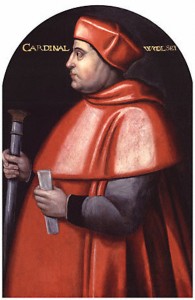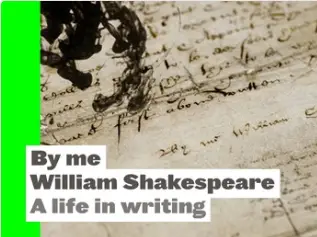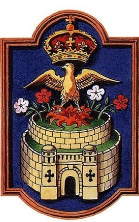
Thomas Wolsey. Lord Chancellor
England had previously been at war with France in 1523 and war against the old enemy was once again proposed in early 1525. In February of that year the French troops had suffered a devastating loss against the Imperial troops of Charles V outside of Pravia. To make matters even worse for the French, their King, Francis I, had been captured in the battle and was now a prisoner of Charles V. When the messenger brought the news of Francis I's capture to Henry VIII the King is reported to have been likened to the Archangel Gabriel, such was his happiness and excitement at hearing the news. Henry VIII, ever the opportunist, saw another chance at military glory and quickly proposed war against France. The English King believed that the idea to go to war had been blessed by God and, unlike two years previously, he had visions of reclaiming the French throne for England.
However much the King desired to go to war, his coffers were greatly reduced due to the war England had undertaken against France only two years previously. Naturally, money, and a lot of it, was needed to fund a war and it was needed quickly. Thomas Wolsey proposed an ‘Amicable Grant’ hoping to gain an estimated £800,000 for the proposed war. However, this ‘Amicable Grant’ was not passed through Parliament, rather it was proposed as a means for people to give monetary ‘gifts’ to fund the King's war. Of course, people did not have a say over whether they wished to donate to the King's war fund, rather the grant was proposed as a nice way of demanding coin, hence the title.
Clergy were ordered to pay a third of their income, if it was more than £10 a year, or a quarter if it was less. Laity (essentially everyone else, those not in the service of the church) were required to pay 3s 4d in the pound if they earned over £50 a year, those earning between £20 and £50 a year were required to pay 2s 8d per pound and those earning less than £20 a year had to pay 1s per pound. Naturally the ordinary person was not impressed. These so-called gifts to the King to fund his war were nothing of the sort. Instead they were demands upon people who more often than not struggled to make ends meet. In addition to this in 1522 – 1523 a huge loan of £250,000 had been forced upon the people and it had not yet been paid back.
Discontent quickly spread through the country. People claimed that they could not afford to pay the tax and that it was unconstitutional because it had not been approved by parliament, while the clergy protested as they had not agreed to such a tax in convocation. Soon there were widespread rumblings in Essex, Kent, Norfolk, Warwickshire and Huntingdonshire. However, the greatest protests were in Lavenham where around 4000 people gathered to protest against the grant. The King quickly sent the Dukes of Suffolk and Norfolk to try to deal with the protesters, who greatly outnumbered their own army. While the Duke of Suffolk waited for the Duke of Norfolk and his men to arrive, he began to burn bridges in an attempt to stop the rebels. He also informed Wolsey that his troops would defend him against all perils, but he doubted that they would fight against their own countrymen. Luckily, the rebels did not put up a great deal of resistance. Several leaders of the rebellion returned with the Dukes of Suffolk Norfolk to London and were quickly put in the Fleet Prison.
Henry VIII, ever-conscious of the opinion of his people quickly performed an about-turn. Organising a council meeting, the King stated "that his mynd was neuer, to aske any thyng of his commons, whiche might sounde to his dishonor, or to the breche of his lawes." Whether in an act of clemency or in realisation that it was not possible to gather such funds from the people, and with the threat of rebellion on their hands, the idea of the Amicable Grant was quickly dropped. The King claimed that he knew nothing about the grant and that he had not authorised it. A general pardon was granted for the rebels and those held in the Fleet Prison were released. In the end, Thomas Wolsey took the blame for the whole affair and the idea of going to war with France was dropped.
Sarah Bryson is the author of Mary Boleyn: In a Nutshell. She is a researcher, writer and educator who has a Bachelor of Early Childhood Education with Honours and currently works with children with disabilities. Sarah is passionate about Tudor history and has a deep interest in Mary Boleyn, Anne Boleyn, the reign of Henry VIII and the people of his court. Visiting England in 2009 furthered her passion and when she returned home she started a website, queentohistory.com, and Facebook page about Tudor history. Sarah lives in Australia, enjoys reading, writing, Tudor costume enactment and wishes to return to England one day. She is currently working on a biography of Charles Brandon, Duke of Suffolk.
Sources
- 1525: Amicable Grant (2014), All Kinds of History, viewed 29 November 2015, https://tudorrebellions.wordpress.com/2014/11/23/1525-amicable-grant/.
- Betteridge, T & Freeman, T (2012), Henry VIII and History, Ashgate Publishing Limited, England.
- Kadouchkine, O (2014), The Amicable Grant, 1525, 29 November 2015, http://jwsmrscott.weebly.com/tudorpedia/the-amicable-grant-1525.
- MacCulloch, D (1995) The Reign of Henry VIII Politics, Policy and Piety, St Martin’s Press, New York.
- The Amicable Grant 1525, Staging the Henrician Court bringing early modern drama to life, 29 November 2015, http://stagingthehenriciancourt.brookes.ac.uk/historicalcontext/the_amicable_grant_1525.html.
- Wooding, L (2015) Henry VIII, Routledge, Oxon.



The fact that the Amicable Grant had not been approved by Parliament should have warned Wolsey and his Government that trouble could result. For one thing it was against Magna Carta to raise taxation without the backing of Parliament and the commons had every right to resist payment. I also read recently in one of the many books out this year, but cannot remember which one that the protesters also cited a law passed by Richard iii that enhanced their protection against unlawful taxation and arrest if protesting. Wolsey was not impressed and dismissed this idea. He was wrong of course, the law was still enforceable and accepted as legitimate. It was still on the statute book, Wolsey may not approve but he had no legal grounds for this tax. At least at this time Henry Viii was sensible and understood the reality of the situation. He backed down as he was still level headed and his people meant something, the public conception of Henry was still sensitive and counted. He had not yet become tyrannical and unfeeling. There was nothing he could do. Magna Carta/Protesters 5, Wolsey/Henry 0.